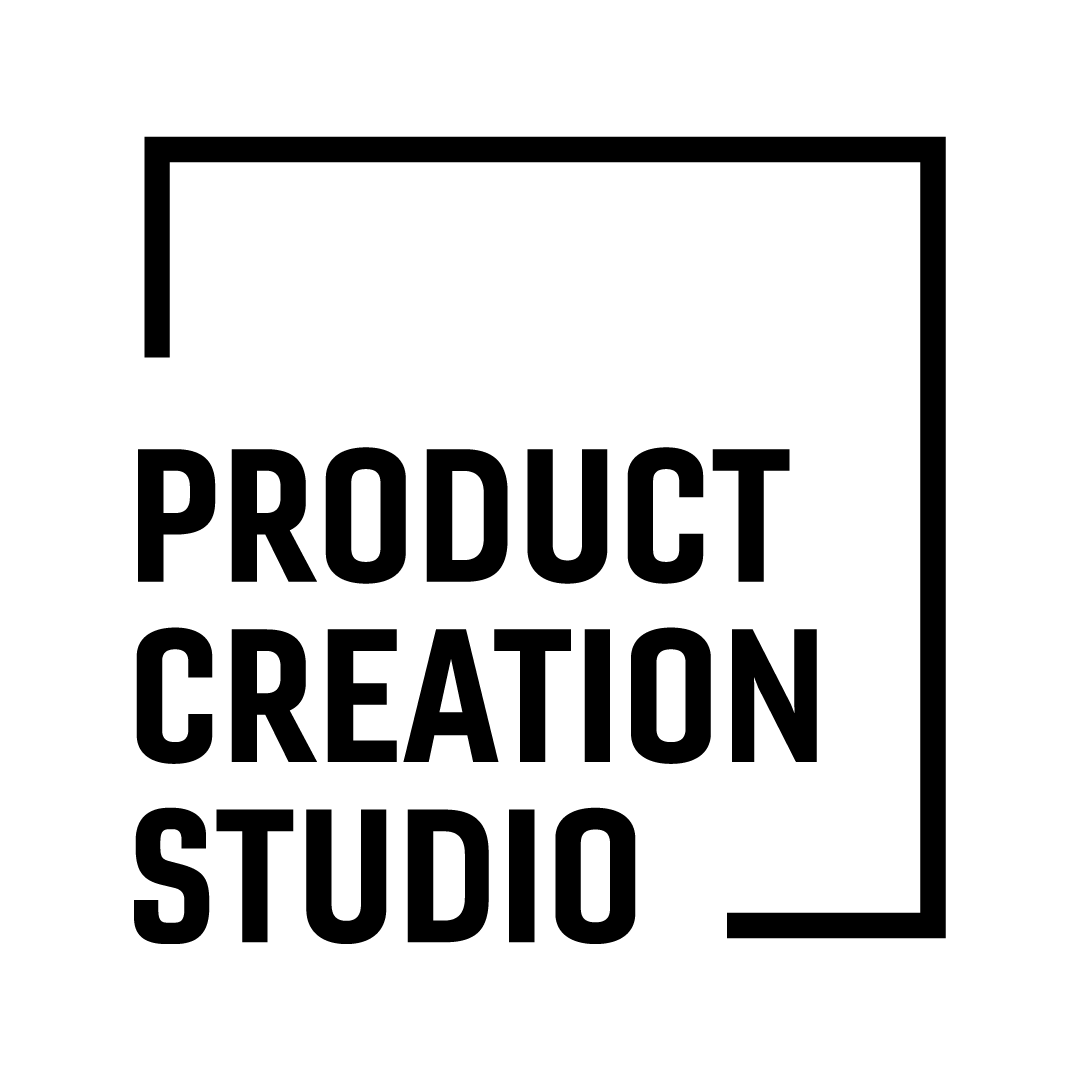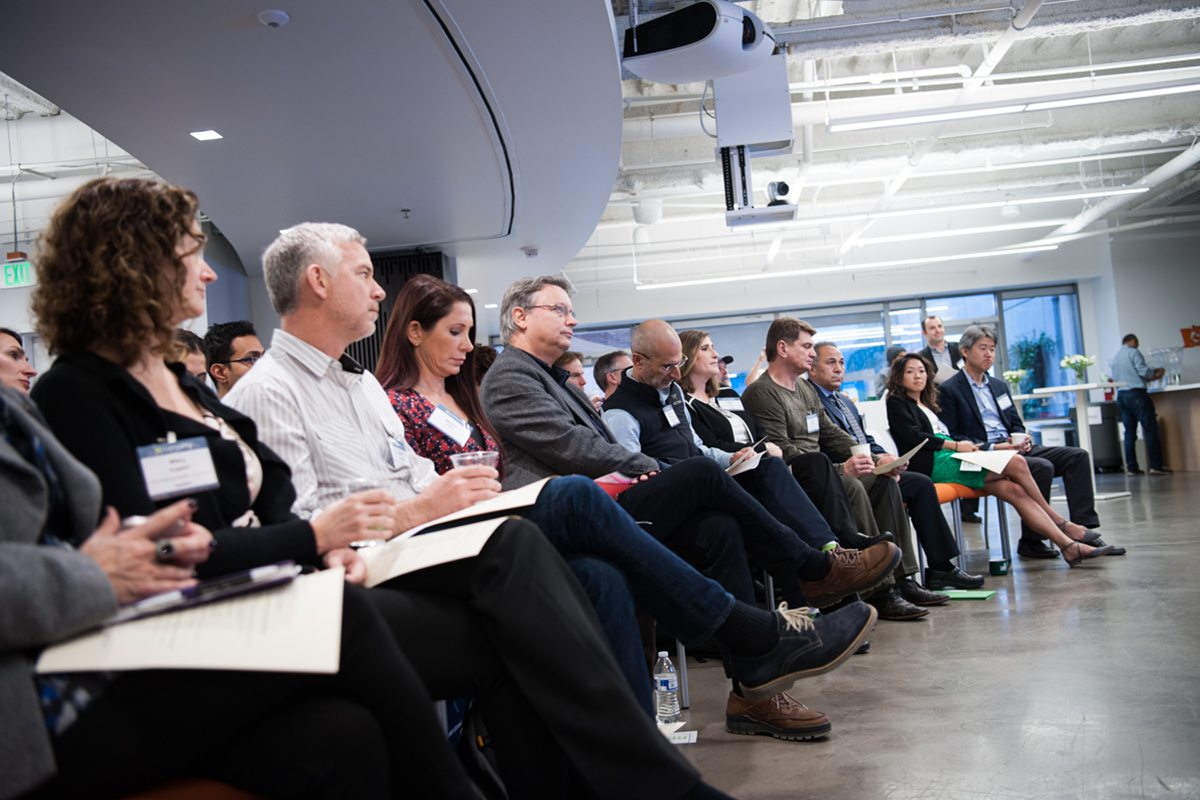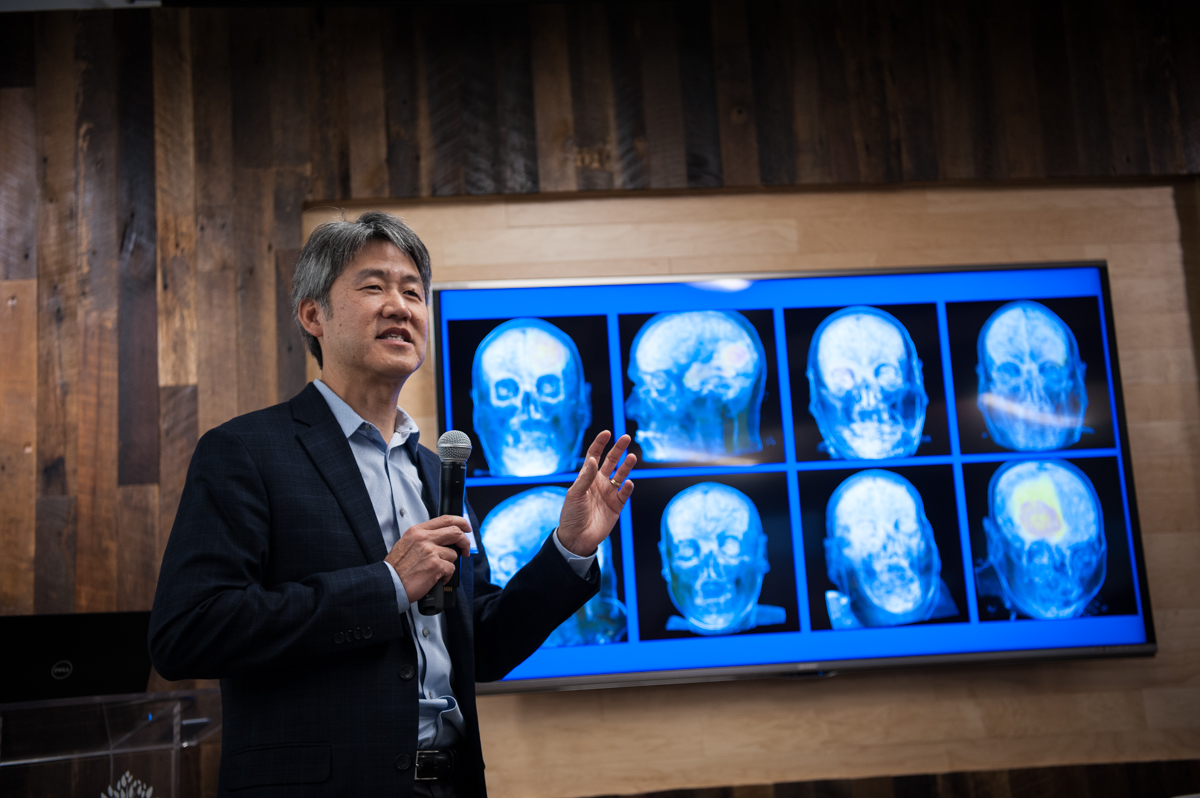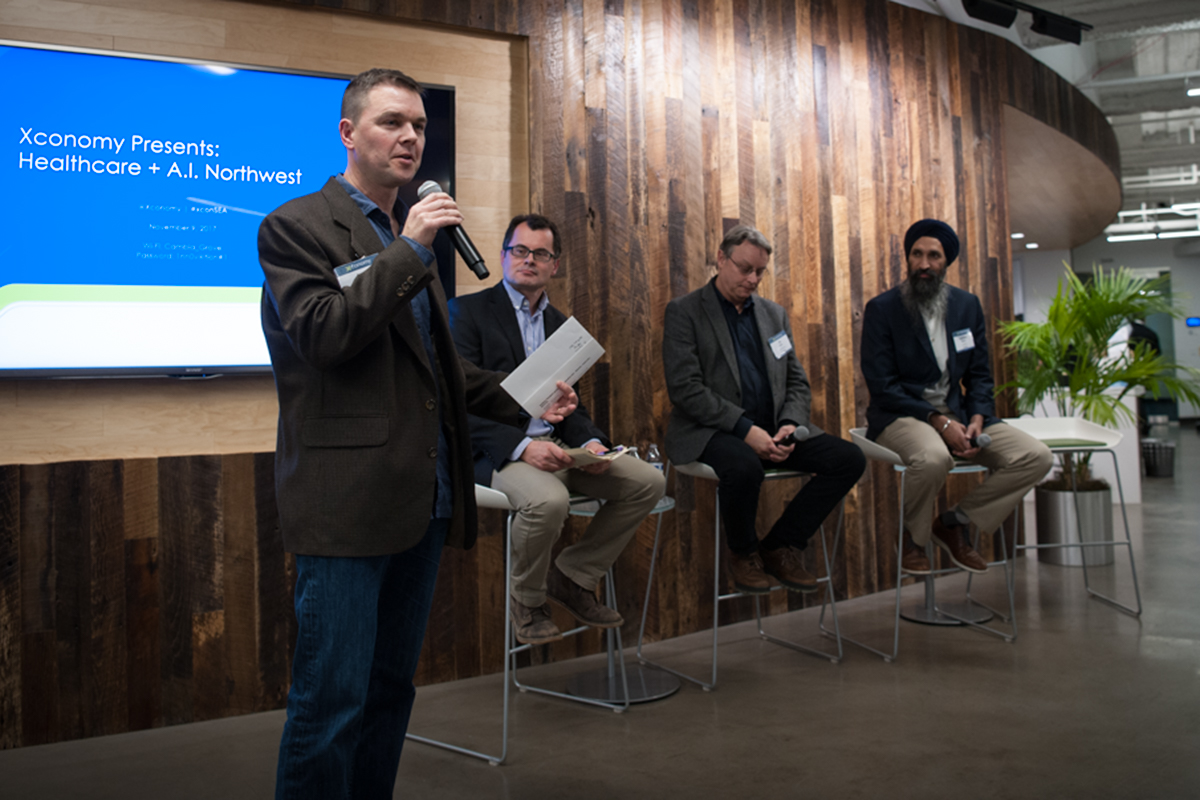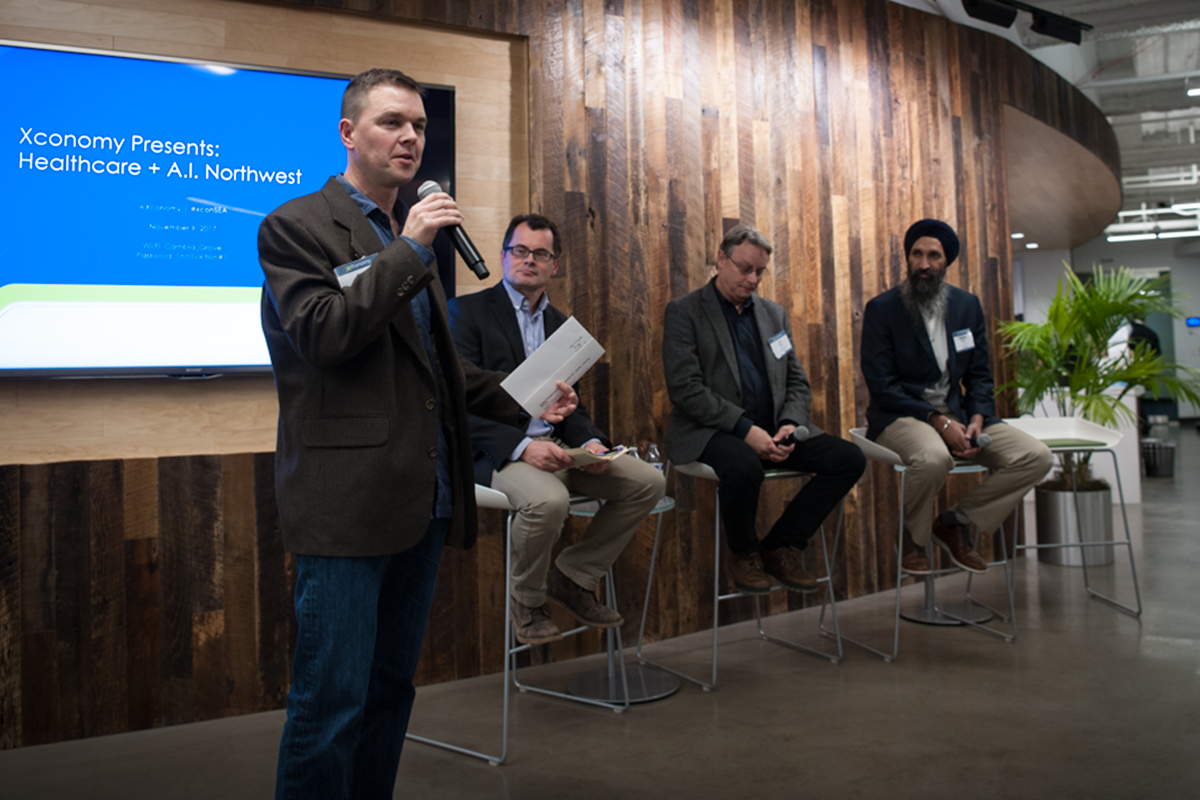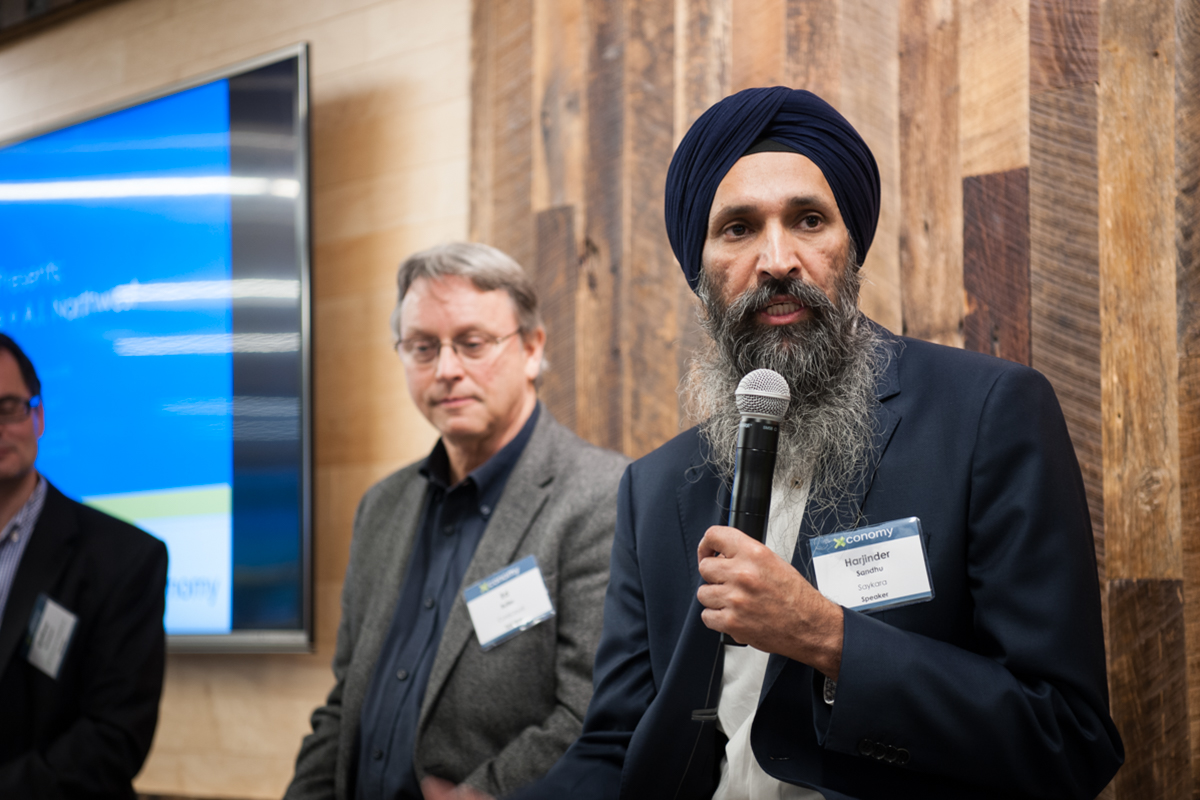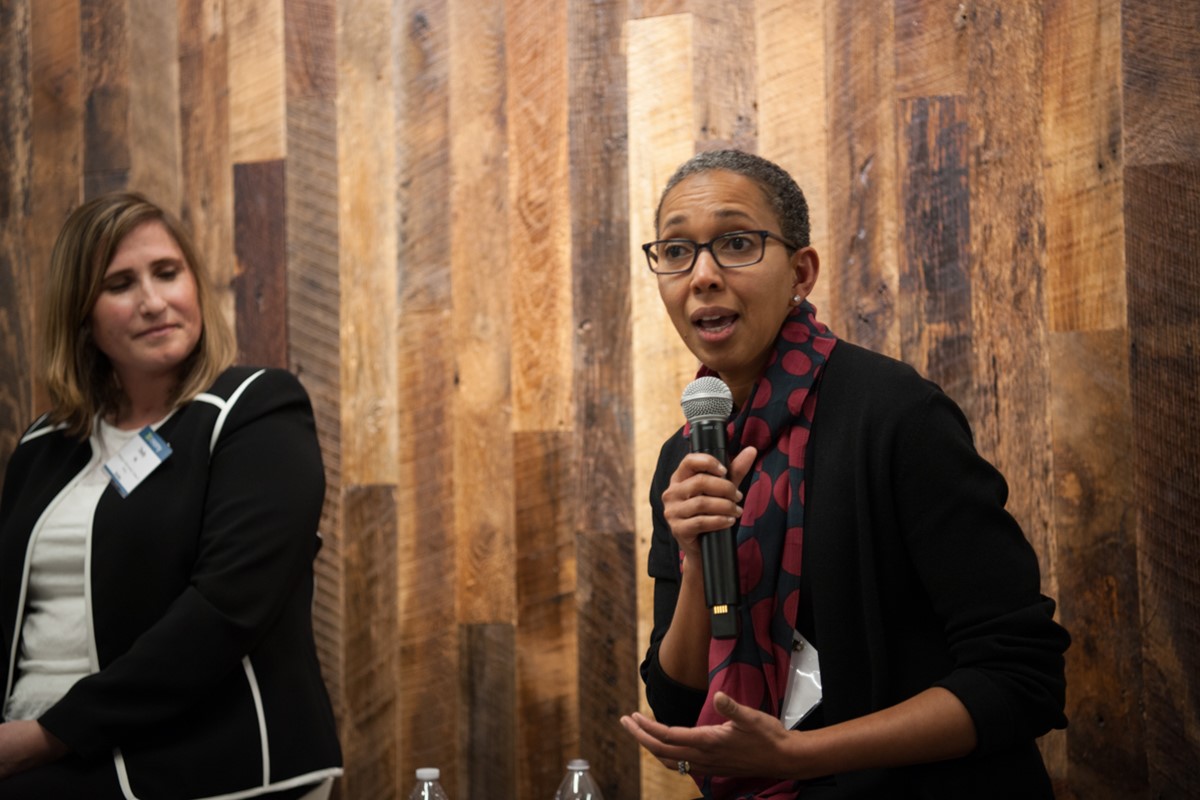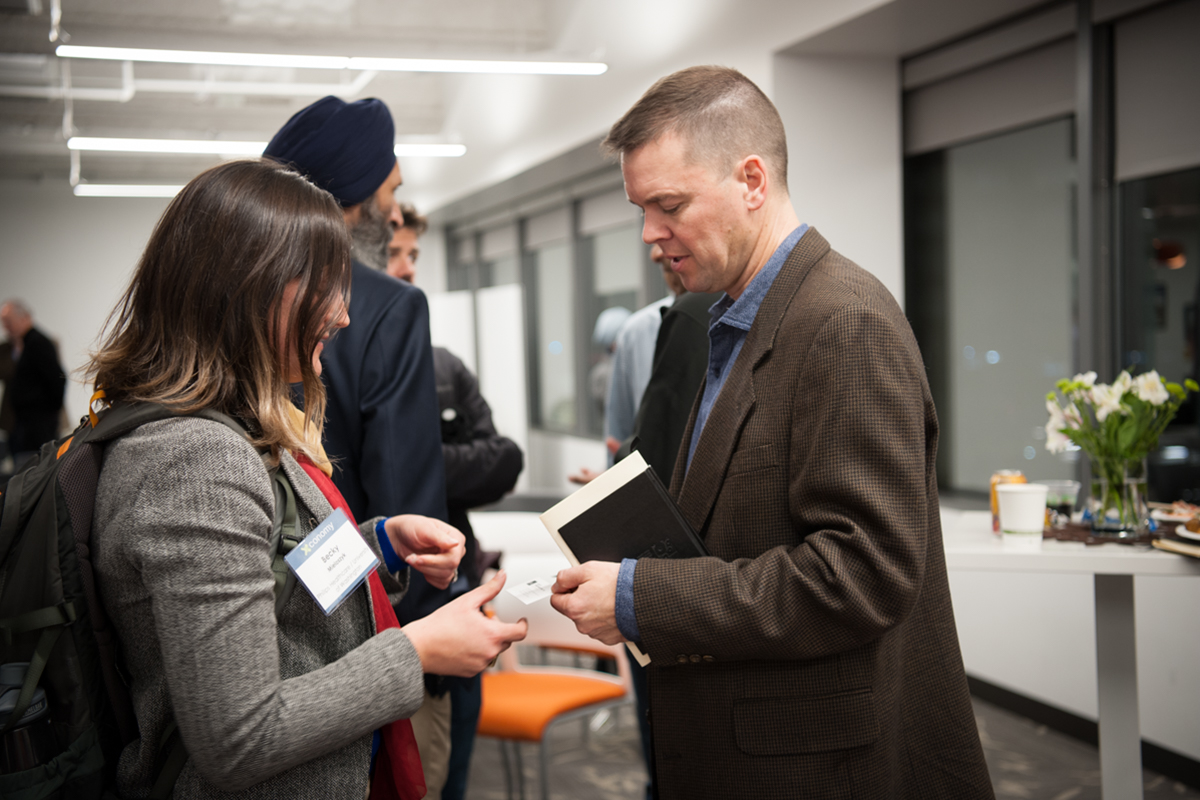Xconomy's Healthcare + A.I. Northwest Event Recap
An outstanding group of over 150 innovators and entrepreneurs in healthcare and artificial intelligence convened for a half day conference at Cambia Grove in Seattle last month.
The event, titled Healthcare + A.I. Northwest, provided insight into the ways machine intelligence is poised to transform the healthcare industry, from research to patient care, over the next several years.
Speakers from around the industry included startup founders, device manufacturers, computer science luminaries, and many healthcare practitioners who weighed in on the hype, the challenges and the use of this burgeoning technology.
Peter Lee from Microsoft Technology kicked off the event with a rousing discussion about how machine learning can maximize the elusive search for clues in how to treat, and ultimately find a cure for, various forms of cancer.
While he made sure to note that artificial intelligence cannot magically find solutions to some of healthcare’s biggest challenges, it can provide some improved efficiencies on how to streamline learning curves and allow researchers to quickly test treatments and cures.
As noted in Xconomy’s event recap, one of the major disconnects to fix before machine intelligence can truly be unleashed on healthcare is around accessing data -- making it accessible and usable, and ensuring that it won’t perpetuate or exacerbate existing biases as new technologies impact the delivery of healthcare.
Product Creation Studio’s CTO Scott Thielman noted this challenge in his talk that centered on the early benefits of A.I. and how physicians could start utilizing the technology to make their day-to-day more productive.
It was in this session that Harjinder Sandhu echoed the disconnect between new technologies and healthcare. For example, the electronic health record has created a huge disconnect between medical professionals and their patients due to the enormous burden of data entry. His company, Seattle-based Saykara, helps reduce this burden by utilizing machine learning technologies and speech recognition to eliminate the hassle of working with EHRs.
Another speaker, Oren Etzioni from the Allen Institute for Artificial Intelligence, detailed his team’s current project, an academic search engine for scientific articles called Semantic Scholar. This search engine – using A.I. and multi-layered filtering options – is designed to help medical practitioners and scientists sift through the rapidly growing research databases in their respective fields.
Overall, the event hosted a great discussion on the current landscape of A.I. technology, as well as highlighted the current companies and products that are helping healthcare become more operationally efficient.
